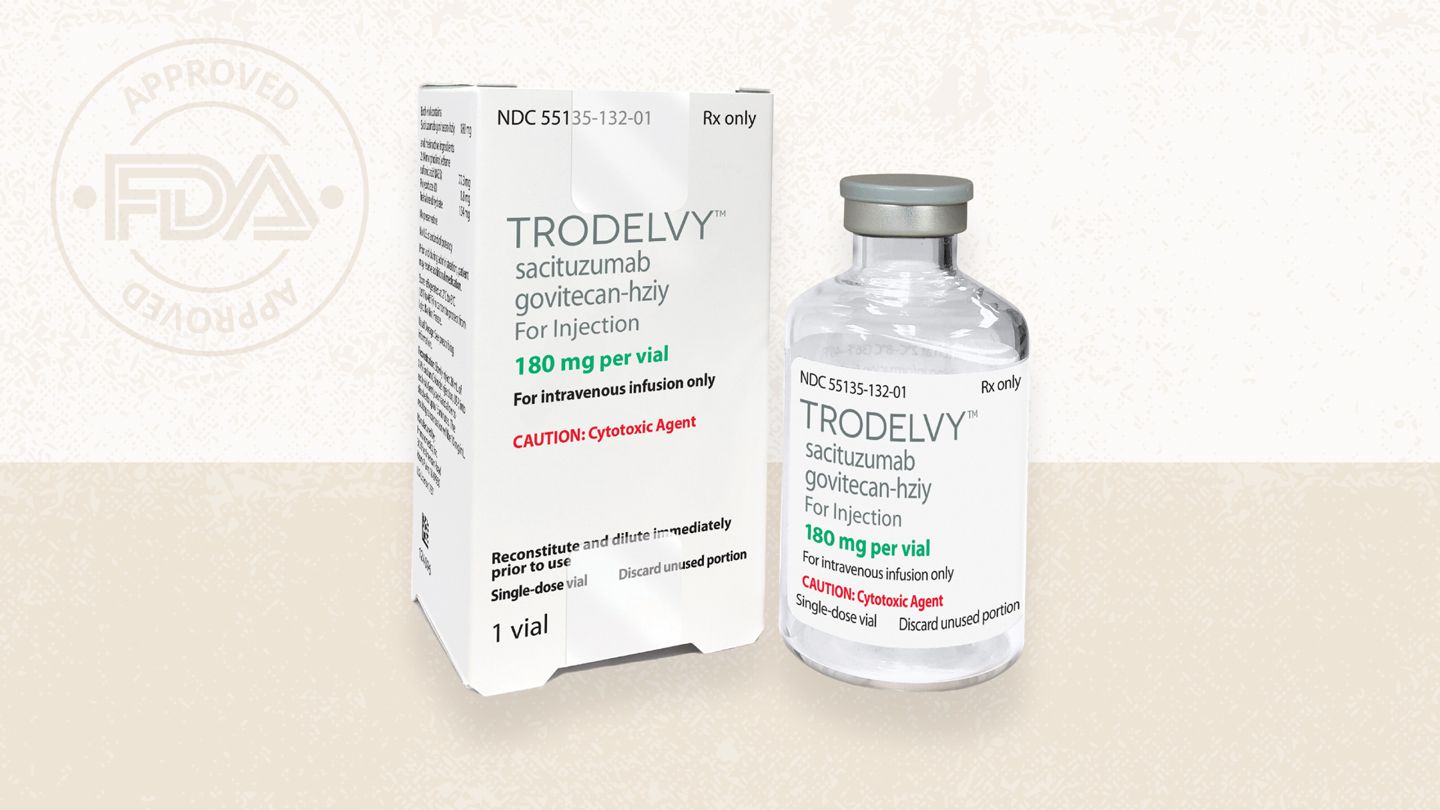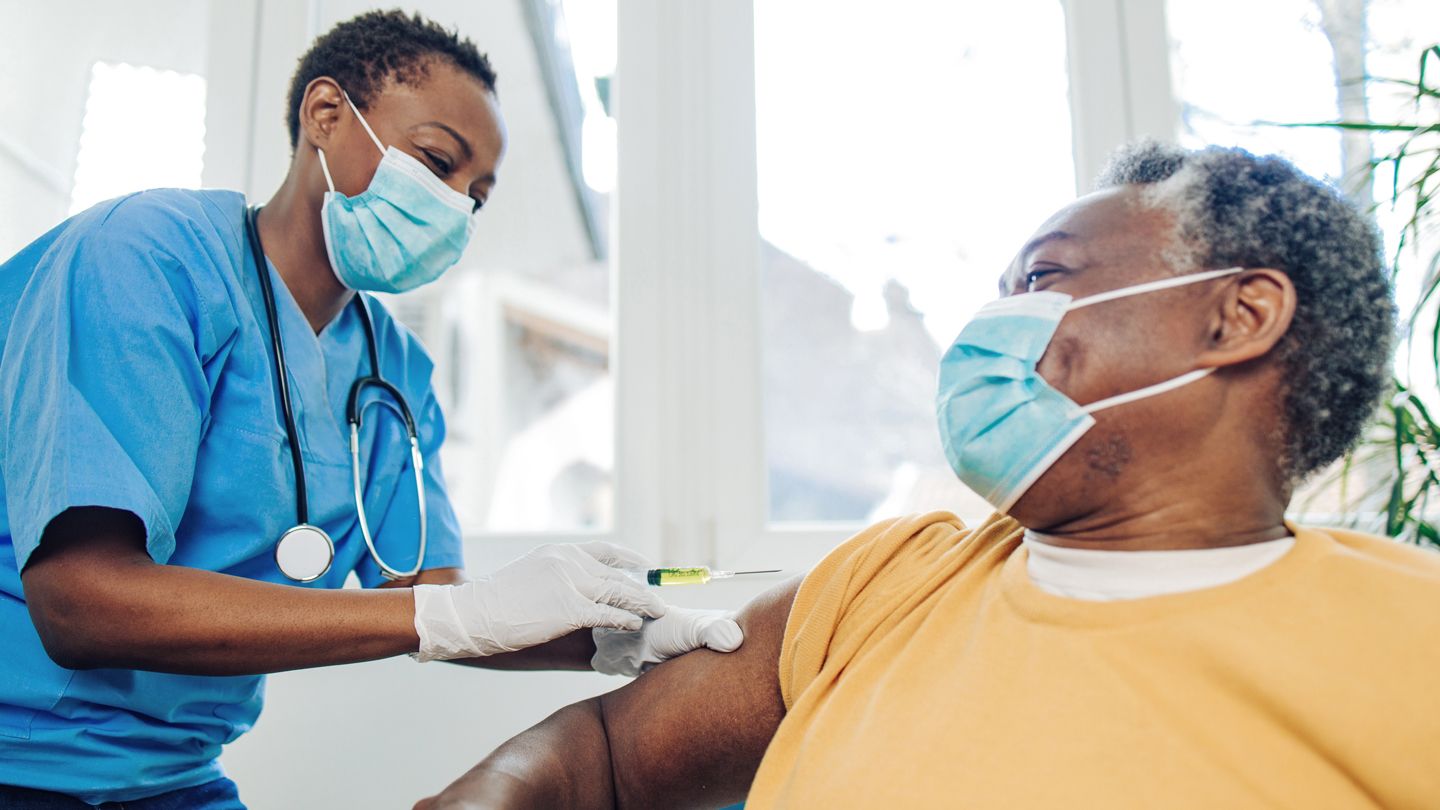Patients with the most common subtype of breast cancer have a new treatment option. The U.S. Food and Drug Administration (FDA) has expanded its approval of the oncology drug sacituzumab govitecan (Trodelvy) to include advanced hormone receptor (HR)–positive, human epidermal growth factor receptor 2 (HER2)–negative (HR-positive/HER2-negative) tumors.
The FDA approved Trodelvy for adults with advanced HR-positive/HER2-negative breast cancer that can’t be completely removed with surgery and that hasn’t been eradicated by chemotherapy or endocrine therapy that’s designed to interfere with hormones that fuel tumor growth, according to Gilead Sciences, the company that developed the drug.
HR-positive/HER2-negative tumors are the most common subtype of breast cancer, according to the National Cancer Institute (NCI). Nearly all patients survive at least five years when this type of breast cancer is caught very early, and more than 90 percent of them live this long when tumors have only spread to some surrounding tissue near the breast, according to the NCI.
But five-year survival odds drop to about 32 percent for patients with tumors that have metastasized, or spread to more distant tissue and organs, according to the NCI.
“Trodelvy will certainly change the treatment landscape” for advanced HR-positive/HER2-negative breast cancer, says Kiven Erique Lukong, PhD, a professor and breast cancer researcher at the University of Saskatchewan College of Medicine in Canada, who was not involved in the trials for the new approval. “It will benefit patients with metastasis who have exhausted all previous treatment options including surgery.”
Trodelvy Fills a Significant Gap in Breast Cancer Treatment, Experts Say
Trodelvy may help stall tumor growth, easing symptoms to provide a better quality of life, and also extend survival times for some patients, says Hope Rugo, MD, professor of medicine and director of breast oncology and clinical trials education at the University of California San Francisco Comprehensive Cancer Center.
“We run out of treatment options long before many patients are ready to stop therapy — they still have good quality of life and organ function,” says Dr. Rugo, lead author of a pivotal clinical trial the FDA reviewed before approving Trodelvy for people with advanced HR-positive/HER2-negative breast cancer.
Trodelvy is in a family of medicines known as antibody-drug conjugates. It includes an anti-cancer drug as well as an antibody that fights an antigen, or toxin in the immune system, that can play a role in some forms of cancer.
The FDA approved Trodelvy in 2020 for triple-negative breast cancer, which involves tumors that don’t have estrogen or progesterone receptors and make little or none of the protein HER2.
Trodelvy Yielded Better Results Than Chemotherapy Alone
Researchers then began to look at its application toward other types of breast cancer, and presented preliminary late-stage results from the ongoing TROPiCS-02 trial in June at the 2022 conference of the American Society of Clinical Oncology (ASCO). All 543 patients in the trial had advanced HR-positive/HER2-negative breast cancer and had already tried multiple courses of chemotherapy as well as hormone therapy and other types of targeted cancer drugs.
Scientists randomly assigned patients to receive either chemotherapy or Trodelvy and continue treatment until side effects made further treatment impossible or tumors started spreading again. The median time without tumor growth — meaning this period was shorter for half of the patients and longer for the other half — was 5.5 months with Trodelvy and 4 months with chemotherapy, according to interim trial results as of January 2022.
With Trodelvy, 46 percent of patients had no tumor progression at six months and 21 percent still had no tumor growth at 12 months, this interim analysis found. By comparison, 30 percent of chemotherapy patients had no cancer progression at six months, and 7 percent still had no tumor growth at 12 months.
Additional results from this trial presented in September at the 2022 ESMO Congress showed a clear survival advantage with Trodelvy. This analysis, based on interim results as of July 2022, found people survived a median of 14.4 months on Trodelvy, compared with 11.2 months on chemotherapy.
Most patients experienced side effects, which impacted 74 percent of those on Trodelvy and 60 percent of people on chemotherapy according to the results presented at ASCO. Neutropenia, or dangerously low levels of white blood cells, was the most common serious side effect, impacting 51 percent of patients on Trodelvy, followed by diarrhea, which affected 10 percent of these patients. There was also one treatment-related death in the Trodelvy group.
Because of its risks of neutropenia and diarrhea, Trodelvy carries a so-called black box warning, the FDA’s strictest.




